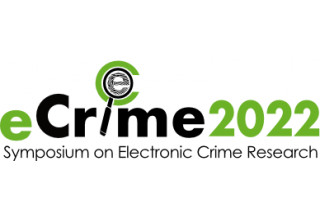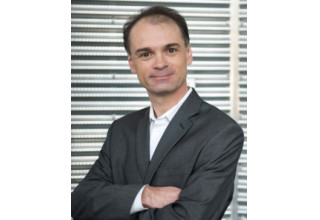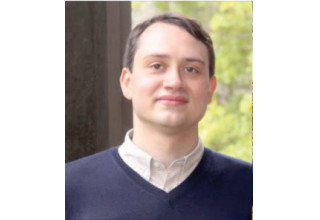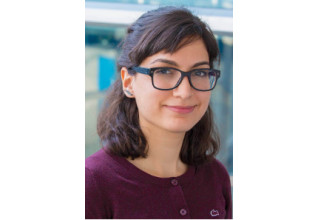APWG eCrime 2022 Symposium Examines the Menace and Mutation of Cybercrime in a Time of Continental War and Global Pandemic

CAMBRIDGE, Mass., May 25, 2022 (Newswire.com) - APWG's Symposium on Electronic Crime Research (APWG eCrime), the world's only peer-reviewed conference convened exclusively for cybercrime research, this week announced the opening of paper submissions for the annual conference at a time of unprecedented growth in cybercrime and contemporaneous global disruptions borne by pandemic and war.
Since 2006, APWG eCrime has typically examined the economic foundations, behavioral elements, and other keystone aspects that animate and fuel the burgeoning global, multi-billion-dollar cybercrime plexus - but the intersecting crises of this hour make the research that is presented at this annual conference particularly poignant this year.
Newly appointed General Chair for eCrime 2022, Dr. Guy Vincent-Jourdan of the University of Ottawa, said, "In this year especially, the key issues of cybersecurity - defending people, defending infrastructure, defending nations, preventing cyberattacks and the spread of misinformation - all of these topics covered by eCrime have become so important, not just to researchers but to everyone."
"The research that will be presented at the conference will be particularly important," Dr. Jourdan concluded.
CALL FOR RESEARCH PAPERS:
APWG eCrime 2022, the 17th annual symposium, will be held on Nov 30-Dec 2 as a virtualized program - though the APWG reserves the possibility of producing the program as a hybrid or in-person conference, depending upon the conditions this winter.
eCrime 2022 consists of a 3-day program composed of keynote presentations, technical and practical sessions, and interactive panels.
SUBMISSION TOPICS INCLUDE BUT ARE NOT LIMITED TO:
• Detecting and/or mitigating eCrime (e.g. online fraud, malware, phishing, ransomware, etc.)
• Measuring and modeling of eCrime
• Economics of online crime
• eCrime delivery strategies and countermeasures (e.g. spam, mobile apps, social engineering, etc.)
• Security assessments of mobile devices
• Public Policy and Law for online crime
IMPORTANT DATES FOR eCRIME 2022:
Submission: September 9
Notification: October 21
Camera ready: November 18
Conference: Nov 30-Dec 2
Accepted papers will be submitted for inclusion into IEEE Xplore subject to meeting IEEE Xplore's scope and quality requirements. In addition, cash awards will be given for the best paper overall and the best student co-authored paper. In 2022, the conference will be held online.
CONFERENCE NOTES PAGE: https://apwg.org/event/ecrime2022/
PAPER SUBMISSIONS WEBSITE: https://ecrime2022.hotcrp.com/
The Symposium on Electronic Crime Research (APWG eCrime) was founded in 2006 as the eCrime Researchers Summit, conceived by APWG Secretary General Peter Cassidy as a comprehensive, multi-disciplinary venue to present and publish the most rigorously developed research into electronic crime and engaging every aspect of its evolution - as well as spotlighting technologies and techniques for cybercrime detection, response, forensics and prevention.
Since then, what had been initially a technology-focused conference has incrementally expanded its focus to cover behavioral, social, economic, and legal/policy dimensions as well as technical aspects of cybercrime, following the interests of our correspondent investigators, the symposium's managers as well as the APWG's own directors and steering committee members.
Scores upon scores of papers exploring these dimensions of cybercrime at APWG eCrime have been published by the IEEE <APWG | eCrime Research Papers> as well as by Taylor & Francis and the Association of Computing Machinery (in the very earliest years of the symposium).
With its multi-disciplinary approach, APWG eCrime every year brings together the most heterogeneous community of counter-eCrime researchers and industrial stakeholders to confer over the latest research, and to foster collaborations between the leading investigators in this still nascent field of cybercrime studies.
The power of that community, over the years, has been expressed in their contributions to research in academia and industry, cited in the papers above, their innovations for industry - and the globally scaled research projects they've organized today: https://ecrimeresearch.org/applied_research/
Media Contact: info@apwg.org or Tel: +1 617 669 1123
ABOUT THE APWG:
Founded in 2003, the Anti-Phishing Working Group (APWG) is an international coalition of counter-cybercrime responders, forensic investigators, law enforcement agencies, technology companies, financial services firms, university researchers, NGOs and multilateral treaty organizations operating as a non-profit organization. Its directors, managers and research fellows advise national and sub-national governments as well as the United Nations (Office on Drugs and Crime) as recognized experts (as defined by the Doha Declaration of 2010 and Salvador Declaration of 2015) as well as multilateral bodies and organizations.
Operationally, the APWG conducts its core missions through APWG, a US-based 501(c)6 organization; the APWG.EU, the institution's European chapter established in Barcelona in 2013 as a non-profit research foundation incorporated in Spain and managed by an independent board; the APWG's Applied Research secretariat; and the STOP. THINK. CONNECT. Messaging Convention, Inc., a US-based non-profit 501(c)3 corporation managing the development of the global STOP. THINK. CONNECT. cybersecurity awareness campaign.
APWG's directors, managers and research fellows advise national governments; global governance bodies such as the Commonwealth Parliamentary Association, Organisation for Economic Co-operation and Development, International Telecommunications Union and ICANN; hemispheric and global trade groups; and multilateral treaty organizations such as the European Commission, the G8 High Technology Crime Subgroup, Council of Europe's Convention on Cybercrime, United Nations Office of Drugs and Crime, Organization for Security and Cooperation in Europe, Europol EC3 and the Organization of American States. APWG is a founding member of the steering group of the Commonwealth Cybercrime Initiative at the Commonwealth of Nations.
APWG's clearinghouses for cybercrime-related machine event data send more than a billion data elements per month outbound to APWG's members to inform security applications, forensic routines and research programs, helping to protect millions of software clients and devices worldwide. APWG Engineering continues to work with APWG member data correspondents worldwide to develop new data resources.
The annual APWG Symposium on Electronic Crime Research, proceedings of which are published by the IEEE, attracts scores of papers from leading scientific investigators worldwide. The conference, founded in 2006 by APWG, is the only peer-reviewed conference dedicated exclusively to cybercrime studies.
APWG's Applied Research and Development programs establish data assets, metrics and conventions that are deployed as permanent working counter-cybercrime resources, such as the APWG eCrime eXchange cybercrime event data clearinghouse; the education-page redirect program, and the STOP. THINK. CONNECT. cybersecurity awareness campaign.
APWG's Applied Research Secretariat's imperative is to develop and deploy universally applicable resources to inform and optimize the global cybercrime-suppression infrastructure in order to neutralize cybercrime programmatically. This organizing principle reflects the criterion by which its R&D programs are prioritized: their potential scale for suppressing cybercrimes in a public-health model of intervention.
APWG's STOP. THINK. CONNECT. cybersecurity awareness campaign has officially engaged campaign curators from 26 nations, deploying STOP. THINK. CONNECT. through cabinet-level government ministries and national-scope NGOs.
Source: APWG




